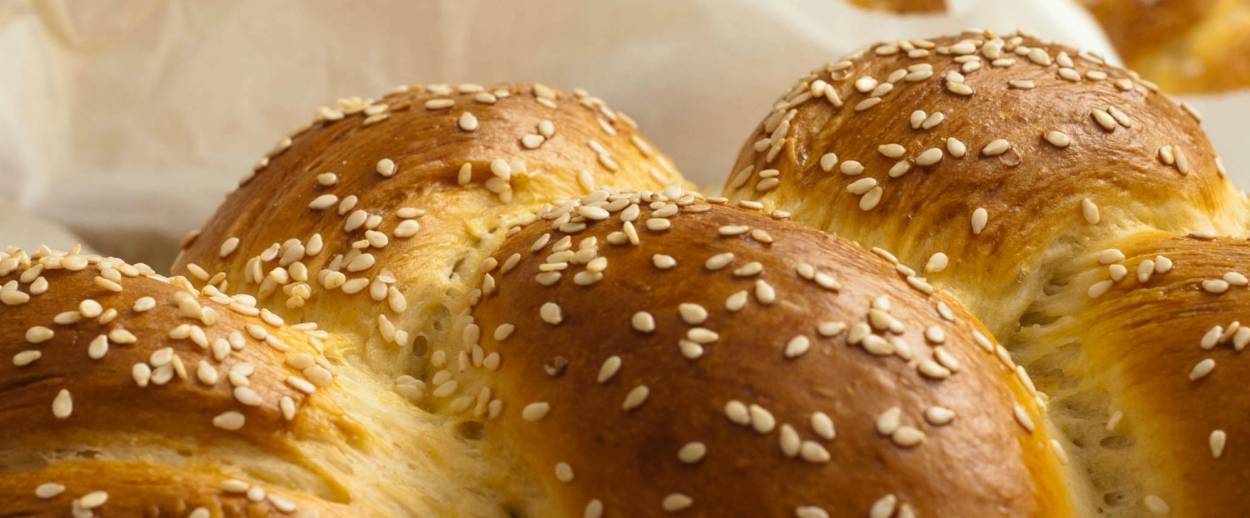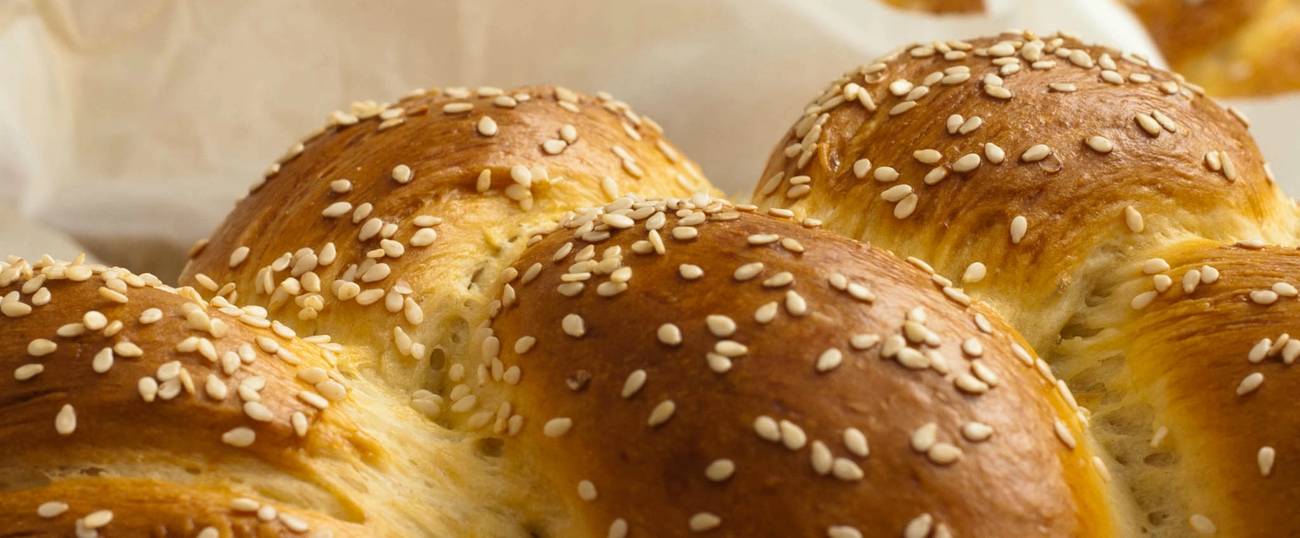Blizzard Can’t Stop Brooklyn From Getting Its Challah On
Jewish unity was on display in Crown Heights—all in the name of braided bread




Last week, while New York City was getting snowed in, an old brownstone synagogue was pulsing with activity. On Thursday, about 100 people—from hipsters to Hasids—came from far and wide to warm up at Congregation Kol Israel (CKI) in Brooklyn’s Crown Heights neighborhood, and to participate in an ancient and ever-popular Jewish tradition: baking challah.
This “Unity Challah Bake” was organized by Chanie Kaminker, Executive Director of Chevra Ahavas Yisroel, and Rabbi Sam Reinstein of CKI, along with nine other community organizations. Their intention was to get together a diverse group of Jews in partnership with the UJA, whose “Unity Shabbat” initiative co-sponsors Challah Bake events across the U.S. “These are mostly grassroots efforts happening in living rooms and basements,” said Kaminker. Their successes, she said, is “counter to the PEW study that says Jewish young people are becoming less affiliated.”
Cocktails, a live deejay, and dried fruit for Tu B’shvat were all a part of the mix, as people mingled before gathering around tables to prepare their individual mixing bowls, equipped with pre-printed recipes. Most participants had never made challah before. A slide show about the traditions of challah-baking played in the background and individual table captains schooled their groups about the origins of this practice: Some discussed its spiritual significance, others passed out baking tips, while some sang as they mixed ingredients and kneaded dough. As the dough was set aside to rise, the room shifted as participants filled their plates for a buffet dinner and met new friends.
UJA’s grant stipulated that organizations can only apply in partnership with another entity, which perfectly fit the current modus operandi of many, most of whom gather monthly, and are supported by larger organizations with permanent spaces, such as Grindr Shabbat (a traditional queer Kabbalat Shabbat) in partnership with Park Slope’s Congregation Beth Elohim, and Shir Hamaalot (a trad-egal prayer group) hosted by the reform Union Temple in Prospect Heights. The Brooklyn Women’s Chavurah creates women-led prayer services according to Orthodox tradition, and Hevria produces digital art and live performances. While some traditional brick-and-mortar congregations such as Prospect Heights Shul and Congregation Kol Israel were present, even Chevra Ahavas Yisrael, pioneers of the modern Chabad youth resurgence in Crown Heights, have no full-time rabbi and are lay-led.
Following dinner, the groups reconvened to bless the separation of the challah, an ancient tradition designated by the Rabbis to represent the original commandment to provide a portion of all food to the kohanim, or priests. In this pluralistic Jewish community, the separated portion was either burned, as is traditional, or baked to be distributed to an actual Kohen—a true reflection of the diversity of religious experience in the room.
While challah-baking was certainly a main draw, for many the allure of the event was its unique approach to hands-on experiential Judaism—and the opportunity to meet new people and make new friends. Some came to meet the others in the community, having lived in Crown Heights for years; others were passionate about supporting their grassroots organization. “I like that there’s different streams of Judaism happening here. Orthodox, conservative, reform, traditional, and everybody’s just baking challah and challah’s bringing us together,” said Tatiana, a 30-year-old participant.
Challah, the great unifier, was loved by everyone. “Show me someone who doesn’t love challah!” exclaimed Kaminker as she watched everybody from sheitel-wearing Chabad housewives to ponytailed social activists interact. “Challah is specifically good for (unity),” said Reinstein. “You’re mixing lots of ingredients together. Then you’re taking three, sometimes more, parts and twisting them together. It’s shaped differently than your traditional dough, you’re unifying different pieces. I think it was beautiful that we were able to unify different pieces tonight through something that inherently unifies different pieces.”
A representative from the UJA, the event’s sponsor, asked attendees to raise their hands to show how long they’ve lived in Crown Heights. They ranged from a year to 25-plus. Reinstein observed that returning to Jewish spaces like CKI is almost reverse gentrification, a place where our grandparents may have gathered. “The building of CKI is 90 this year, but at the same time it doesn’t feel like it’s 90 years old. It definitely didn’t tonight.”
Rishe Groner, a writer and strategist living in Brooklyn, is the founder of The Genesis.